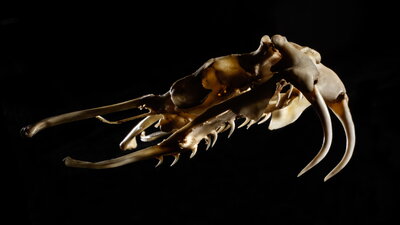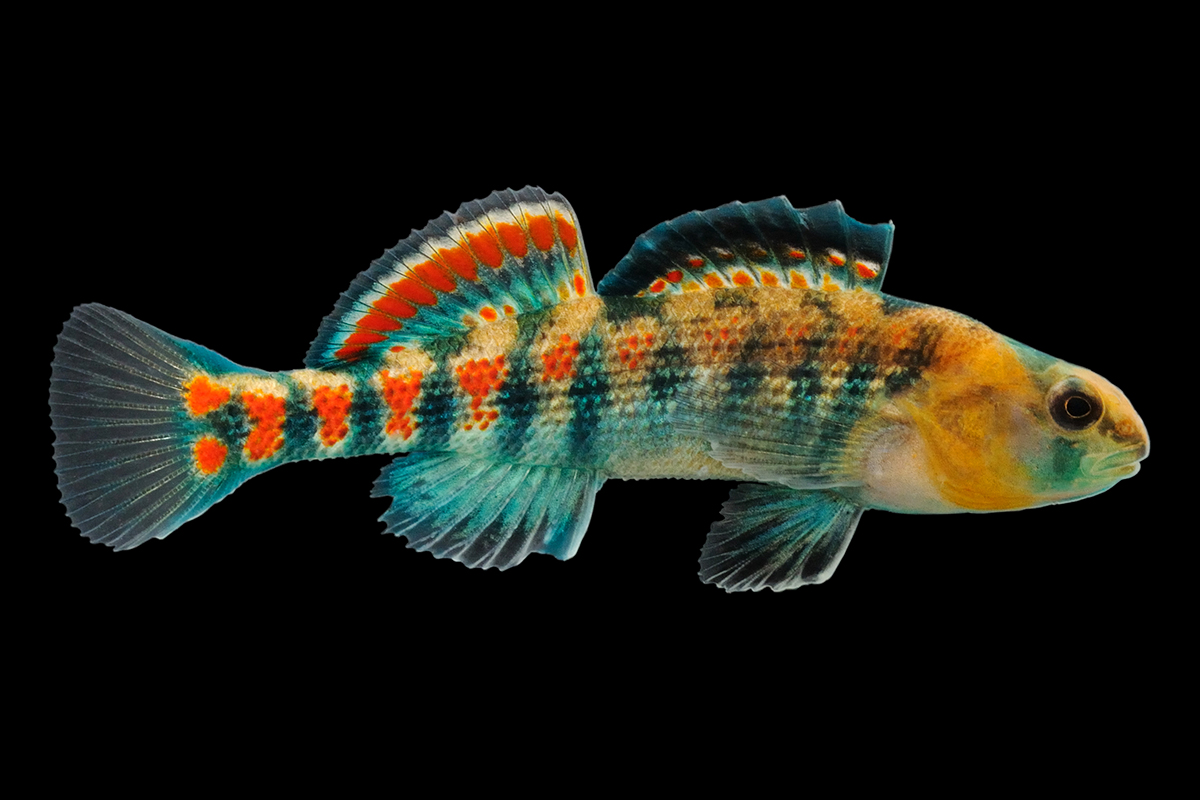

The Department of Evolution, Ecology, and Behavior offers graduate work leading to a Master of Science degree or a Doctor of Philosophy degree, and particularly encourages applications from students interested in the broadly defined areas of Evolution, Ecology, and Behavior.
Due to the breadth of modern biological research, students are expected to take advanced coursework in three of six areas: Ecology, Evolution, Behavior, Genetics / Genomics, Physiology/Anatomy, and Conservation.
Additional courses are chosen by the student in consultation with a faculty advisory committee. The number and nature of these courses will vary with the research interest and background of the individual. Students are encouraged to begin research as soon as possible.

After a student pursuing a Ph.D. has formulated a definite research project, he/she takes a preliminary examination (no later than March 1 of the third year) presenting the thesis topic and preliminary research to a doctoral committee. General knowledge directly related to the research is also determined during the preliminary examination. Finally, a thesis based on original work demonstrating a thorough knowledge of theory and techniques must be defended at the final examination.
Graduate students are required to serve as teaching assistants in undergraduate and graduate laboratory courses for at least two semesters. Most students complete their Ph.D. training in 5 years and M.S. training in 2 years. We encourage you to correspond directly with the faculty members whose research program is related to your own research interests.
Important Documents
Financial Support
- For information on Research Assistant appointments, contact your Advisor or the Evolution, Ecology, and Behavior Office Administrator.
- Teaching Assistant appointments are made by the department in coordination with the School of Integrative Biology.
- Please visit the SIB Graduate Student Grants & Awards page for information on more funding opportunities.
- ENTRY POINT! is a program of the American Association for the Advancement of Science (AAAS) offering Outstanding Internship Opportunities for Students with Disabilities in Science, Engineering, Mathematics, Computer Science, and some fields of Business. AAAS has developed unique partnerships with IBM, NASA, Merck, NOAA, Google and university science laboratories to meet their human resources needs. Working with its partners, AAAS identifies and screens undergraduate and graduate students with disabilities who are pursuing degrees in science, engineering, mathematics, computer science, and some fields of business, and places them in paid summer internships.
- Assistantship Clearinghouse
- Fellowship Office
Frequently Asked Questions - General
Can I enroll as a non-degree student?
No, you must enroll as a M.S. or Ph.D. student.
I'm an Evolution, Ecology, and Behavior Ph.D. student. When do I enroll in "590" and when in "599?"
For research prior to your prelim, enroll in "IB 590." After you have passed your prelim, enroll in "599," which requires a thesis to be deposited in the Graduate College.
What CRN do I use?
To obtain the correct CRN for your advisor for these courses, please contact the Evolution, Ecology, and Behavior office. Note: The CRN is not always the same number for all semesters. The number in the Course Schedule is a generic number and is NOT the correct number to use.
Who should I notify if my contact information changes?
Inform the Evolution, Ecology, and Behavior Office of all changes (address, phone, email, leaving campus for extended period of time, etc.).
Frequently Asked Questions - PhD
When do I have to take my preliminary exam?
Following completion of coursework, Ph.D. students will take a preliminary examination (no later than the end of the 1st semester of their 3rd year). The examination will consist of both written and oral questions and will test the student's general knowledge in the three areas they have declared as being most relevant to their research (see list of topics). The written portion of the examination is to be completed within a one-week period. The format is to be determined by the graduate committee, but students are encouraged to devote one day each to the questions proposed by each committee member. During the examination, the student can use whatever literature is necessary to address the question. Following the written exam, the student will meet with each committee member to discuss the strengths and weaknesses revealed by the written exam. Within two weeks of the written exam, the student will complete an oral exam. As with the written exam, the oral exam will cover general knowledge in the student's three chosen areas. The duration of the oral exam will be approximately two hours.
In the second semester of their 3rd year, students will submit and defend a thesis proposal. The duration of this exam will also be approximately two hours. The purpose of this examination is twofold. First, the proposal should provide the thesis committee with enough information to determine whether or not successful completion of the proposed research would be sufficient for a PhD in Evolution, Ecology, and Behavior. Second, the proposal should be written in such a way that it demonstrates that the student is proficient in scientific writing. A passing grade qualifies you as a PhD candidate.
What do I need to give to my Doctoral Committee prior to the proposal defense?
Two weeks prior to the proposal defense, you must present to the Doctoral Committee a proposal prepared in the format of a proposal for an NSF Dissertation Improvement Grant. It should describe the objectives of the research project, the experimental plan and rationale, the results of pilot studies, a budget, and a tentative timetable for its completion. You will present evidence of feasibility and significance of the proposal, but the main research for the dissertation shall not have been performed prior to the proposal defense. A detailed report of the exam and a copy of the research proposal shall be submitted to the Graduate Committee.
What happens if I don't pass my preliminary exam?
If the committee determines that a student's performance during the exam does not warrant a passing grade, they will defer their decision. A deferred decision will require you to take a second preliminary examination no later than the following semester. A second failure will result in dismissal from the program.
What's involved in the final defense?
Upon completion of your dissertation and the other requirements of the program, you shall be subject to a Final Examination, which shall consist of a defense of the dissertation. Copies of the completed dissertation, approved by the advisor, should be submitted to the Doctoral Committee at least two weeks prior to the Final Examination. The thesis will be judged in relation to published scholarly work in the field, and students are encouraged to begin publishing their results before taking their Final Examination. Passing this exam and presentation of the dissertation by the student at a public seminar sponsored by the program qualify you for the Ph.D. degree. Failure will require you to conduct additional research and to repeat the Final Examination.
What format does the dissertation have to be in? Who checks it?
Information pertaining to formatting can be found on the Thesis Office website. The Thesis Office and the Evolution, Ecology, and Behavior Office Administrator will need to perform a thesis check one week prior to the date of deposit. (This allows time for any errors to be corrected.)
Graduates in Ecology and Evolutionary Biology (GEEB)
Graduate Students in Ecology & Evolutionary Biology (GEEB) is a Registered Student Organization (RSO) that serves to coordinate and unify the many graduate students conducting research in ecology and evolutionary biology at the University of Illinois at Urbana-Champaign, including students interested in natural resources, wildlife management, modeling, conservation biology, and related fields. All students at UIUC are welcome to join!
Our activities include organizing an annual research symposium, facilitating weekly round table discussions for graduate students and faculty (Ecolunch), coordinating workshops and career-building programs and providing a social network for students with similar interests.
